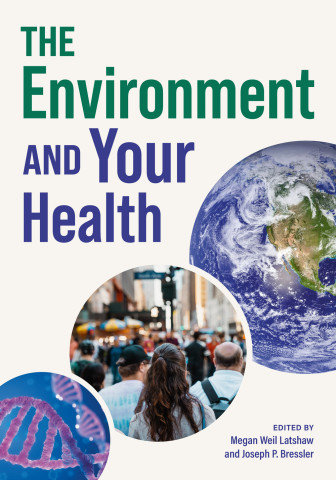
Reviews
This rich volume marks a critical moment in the field of LGBTQ health research. It provides a vital tool for the training of future generations of researchers.
As the first textbook of its kind focused on research methods in LGBTQ health, LGBTQ Health Research: Theory, Methods, Practice represents a milestone in the field's development... This volume will be a particularly valuable resource for students and postdoctoral trainees in LGBTQ health training programs as well as trainees and professionals in other health programs who wish to employ their training and expertise to address LGBTQ health disparities.
All props for this ground-breaking accomplishment in public health for all LGBTQ people and those who care for us and with us.
Offering a holistic approach to the consideration of LGBTQ health disparities, this book functions as a guide for scholars interested in conducting their own research. Its generational heuristic is a unique and helpful orientation to research that has already occurred and to the need to develop future scientific knowledge.
This book would be particularly helpful in graduate courses that include the study of sexual and gender minorities and health.
Book Details
List of Contributors
Acknowledgments
Part 1. Introduction to LGBTQ Health Research
Introduction. Queering Research
Ron Stall, Ronald O. Valdiserri, and Richard J. Wolitski
Chapter 1. Human Rights and
List of Contributors
Acknowledgments
Part 1. Introduction to LGBTQ Health Research
Introduction. Queering Research
Ron Stall, Ronald O. Valdiserri, and Richard J. Wolitski
Chapter 1. Human Rights and LGBTQ Health: Inseparable Challenges
Chris Beyrer
Chapter 2. Global Health / LGBTQ Health
Tonia Poteat and Shauna Stahlman
Chapter 3. A Love Note to Future Generations of LGBTQ Health Researchers
Ron Stall, Chris Beyrer, Tonia Poteat, Brian Dodge, and José Bauermeister
Part 2. Descriptive Research Methods
Introduction. Why Are Methods and Approaches So Important for LGBTQ Health Research?
Brian Dodge and Mark L. Hatzenbuehler
Chapter 4. Definitions: "Straight, that is not gay"—Moving beyond Binary Notions of Sexual and Gender Identities
Randall Sell and Kerith Conron
Chapter 5. Sampling Considerations for LGBTQ Health Research
Christopher Owens, Ron Stall, and Brian Dodge
Chapter 6. Theory as a Practical Tool in Research and Intervention
Ilan H. Meyer, with the Generations Study Investigators
Chapter 7. Creating and Adapting LGBTQ-Specific Measures to Explain Disparities
Joshua G. Rosenberger
Chapter 8. Multilevel Approaches to Understanding LGBTQ Health Disparities
Mark L. Hatzenbuehler
Chapter 9. Social-Network Approaches to HIV Prevention and Care
Carl Latkin and Karin E. Tobin
Chapter 10. Why Focus on Gay Couples in HIV Prevention Research?
Colleen Hoff
Part 3. Intervention Design and Research
Introduction. How Does LGBTQ Health Research Inform Interventions?
José Bauermeister
Chapter 11. Engaging Populations in LGBTQ Health Interventions
Rob Stephenson and Erin Riley
Chapter 12. Finding the Right Approach for Interventions with LGBTQ Populations
Stephen L. Forssell, Peter Gamache, and Rita Dwan
Chapter 13. Program Development Considerations for LGBTQ Health Interventions
José Bauermeister, Ryan C. Tingler, and Gary W. Harper
Chapter 14. From Discovery to Application: Challenges in Effectiveness and Implementation Research for the Promotion of LGBTQ Health and Wellness
Robin Lin Miller and Angulique Y. Outlaw
Index






